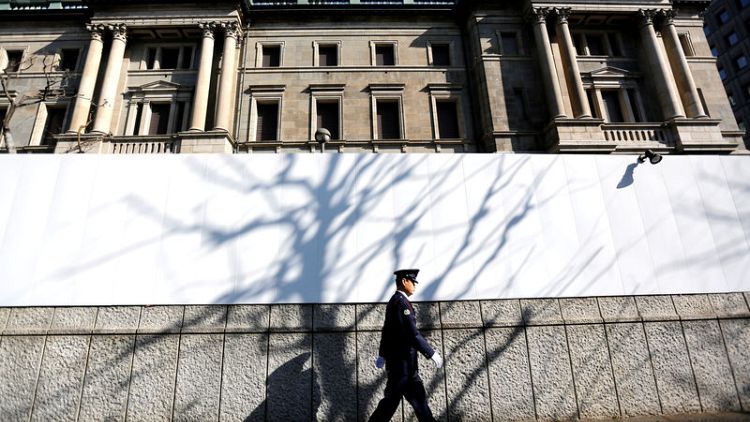TOKYO (Reuters) - The Bank of Japan on Thursday warned the country's banking system is becoming increasingly fragile as financial institutions boost risky lending and investment in an environment of prolonged ultra-low interest rates.
"Credit costs remain low but have recently started to rise, particularly for regional financial institutions," the BOJ said in a semi-annual report analysing Japan's banking system.
Regional banks have been actively taking risks via lending and investment as prolonged ultra-low interest rates and a dwindling population prod them to seek higher returns, it said.
"As they have not been able to secure adequate returns relative to the risks involved, their capital adequacy ratios have continued to decline moderately," the report said.
"Should this situation persist, loss-absorbing capacity in the event of stress would decrease, intensifying downward pressure on the economy by weakening financial intermediation," it said.
Major financial institutions have also expanded overseas lending, which make Japan's banking system more susceptible to the impact of overseas economic conditions, the report said.
The BOJ's report is among factors the nine-member board will likely scrutinise in deciding monetary policy at its rate review on Oct. 30-31.
Failure to fire up inflation to its elusive 2% target has forced the BOJ to maintain its massive stimulus programme for longer than expected, crushing financial institutions' margin and straining Japan's banking system.
BOJ Governor Haruhiko Kuroda has stressed the central bank will carefully weigh the benefits and costs of any further easing of monetary policy.
(Reporting by Leika Kihara; Editing by Shri Navaratnam)



